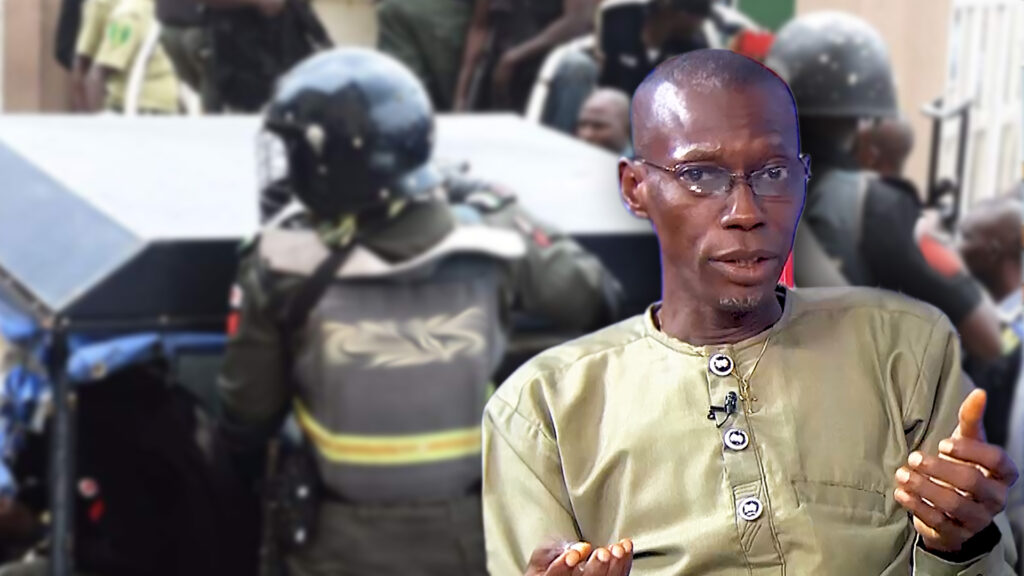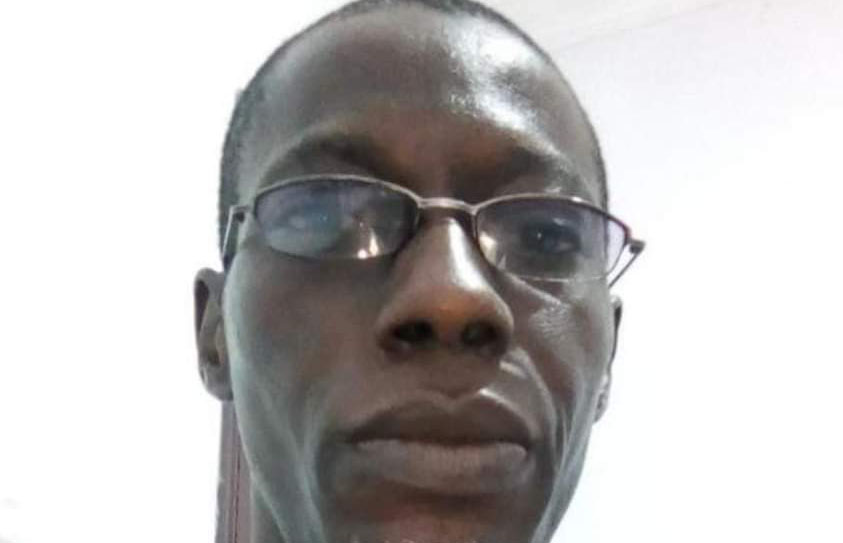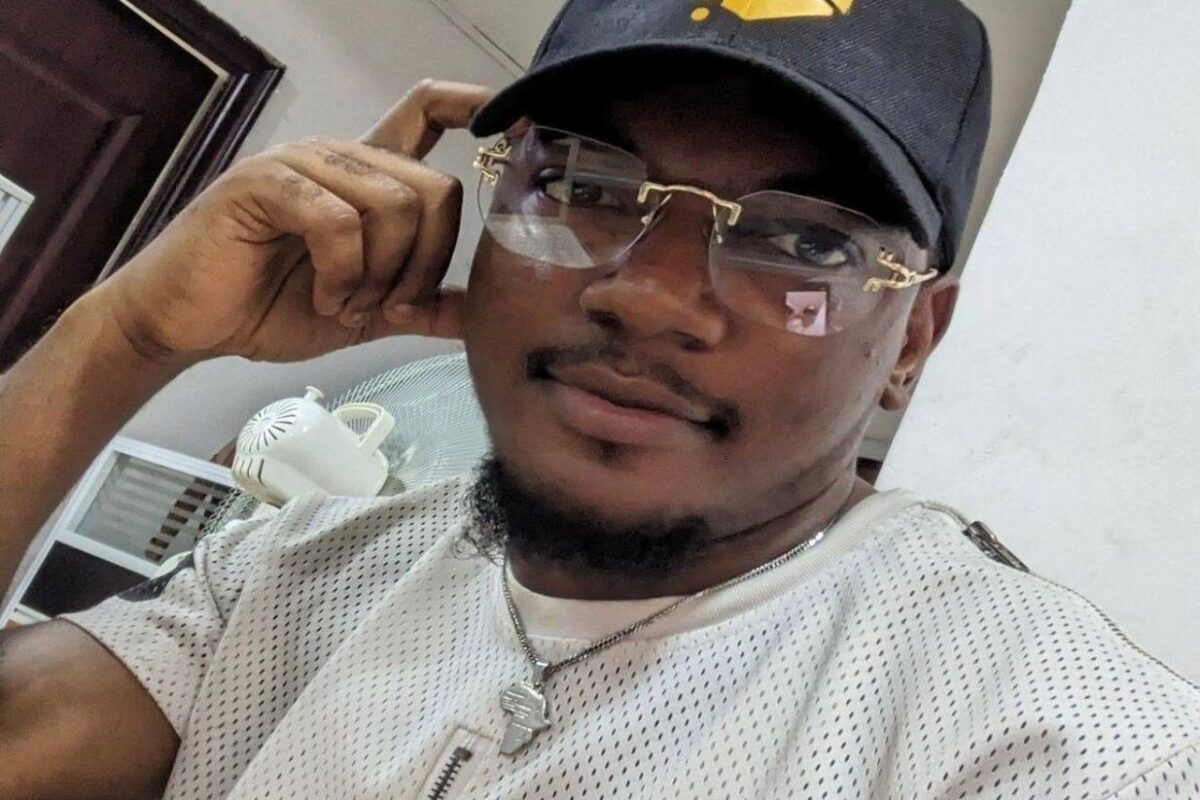When the Adamawa State Government banned the operation of commercial motorcycles in the state’s capital to curb robbery and insurgency, some disgruntled affected young men took to using ‘keke napeps’ to snatch phones and personal effects. Soon, teenagers joined this crime ring. DANIEL OJUKWU went into their hideout to uncover who the Shilla Boys are and how they came to the point of terrorising the state.
When Nigeria shut its airspace, public places and streets on May 4, 2020, in a bid to combat the COVID-19 pandemic, the country was battling a lethal threat it could not see.
That day would be remembered differently by Abubakar Yaro, a barber in Yola, the capital city of Adamawa State, as he came face to face with a more lethal threat he had only heard about for three years.
He had just bought a new phone and was going home with it before the 8 pm curfew when young knife-wielding boys surrounded him and threatened to take his life if he failed to hand over his acquisition. They arrived in a commercial tricycle, popularly known as keke napep.
Frightened but unwilling to forgo an item he had spent months saving for, he bolted for a mosque and found safety in it.
He did not know the names or identities of his attackers. Yaro was not much help to the police but one thing he knew was that they were Shilla Boys, a gang that had earned notoriety for snatching valuable items off Yola residents, and morphing into burglars and armed robbers.
Shilla Boys is a semi-structured group of criminals whose violent crimes date as far back as 2017, although some argue they had begun making their presence felt two years earlier when politicians used them to manipulate the 2015 general election.
What we could establish was that the Shilla Boys began its activities after the state government banned commercial motorcycles to curb the activities of Boko Haram terrorists. The government did this in 2012, 2014 and 2016.
Reacting to the ban, some residents faulted the move and decried the hardship that would befall them. Speaking to the press on various occasions after the ban, residents said insurgents also used vehicles and banning commercial motorcycles would render many jobless and hamper transportation.
When the ban became permanent in Yola in 2016, some commercial motorcycle riders took to crime and they became the boys Yaro had to run from.
Unlike Yaro, many do not get so lucky when they come face to face with Shilla Boys. They often lose an item, a limb or their lives. On some occasions, the public fights back by catching the boys and meting out jungle justice on them.
In the early hours of Saturday, August 12, 2023, Umar Abdulkadir, a 37-year-old Yola resident, was killed by the boys who broke into his house to steal his two phones. On February 25, 2022, they took Abdulmalik Sale’s life. He was a vigilante.
Sale and Abdulkadir were two of the many who suffered at the hands of the boys.
Five days after Abdulkadir’s death, and with no arrests made in connection to his murder, FIJ visited Yola and came face to face with the murderous Shilla Boys.
IN THE BELLY OF THE BEAST
The air was bad, grass was overgrown, and everything in front of us suggested we were walking into nothingness. The date was Thursday, August 17, 2023.
It was as though all of Yola’s garbage ended up here, and no one bothered to collect. We did not see much of the trash, but the stench was enough to make one wonder if we were in the right place, and if those we came to see were indeed here.
On the other side of a hill, we found no fewer than six young men grinding marijuana leaves by a fence and negotiating a sale. They did not take too kindly to seeing us around, but we would later learn they played crucial roles in maintaining the crime rate in the state.
To do this, they kept a low profile, knew almost every drug user in the vicinity, and did not entertain new faces. This explained their apprehension toward us.
A short while after leaving them, we had convinced four former and active Shilla Boys to speak with us. It was in the heart of a thick bush, and the earth had taken its unfair share of human faeces, urine and garbage to help grow long enough plants to keep us covered.

“We’re now in hiding because the police and Department of State Services (DSS) are after us,” Tanko Sulaiman* said. “Even the people, if they see us, they will kill us.”
Sulaiman was a 22-year-old active Shilla Boys operative who relocated from Kano State about a decade ago.
He told us how he joined the crime ring in 2018 when he was 17, and how he saw the option as a way out of poverty.
While speaking, he circled back to the world of illegal substances and its role in the lives of the Shilla Boys’ activities.
Sulaiman said when he was 17 years old, he would usually go into the bush to buy and smoke marijuana. While there, he would see young men arriving with phones, money and valuable items.
“When I ask them how they got the items, they would say, ‘We don Shilla them’,” he explained. What they were telling him at the time was jargon for armed robbery.
Sulaiman then explained how he grew interest and began stealing too. He said he soon became a Shilla Boy and began working with ‘receivers’ to launder the items they stole.
A receiver was one who bought stolen items from Shilla Boys and went to a market far from the scene of the crime to sell for profit.
When these boys rid their victims of their possessions, they sell to the receivers from N10,000 to anywhere around N200,000 depending on the type of phones.
Sulaiman wanted us to know he had worked as a bricklayer in a construction site in the past and did not get paid his wages. He said he tried to earn an honest living.
In this exclusive chat with FIJ, Sulaiman confessed to armed robbery and using knives to scare and inflict wounds on his victims.
“We sneakily collect phones from people on the road, sometimes we use keke napep to ride through town and snatch phones. But if we are not successful, we draw out knives, threaten them and collect the phones. The aim is always to collect the phones,” he explained.
BROKEN BONES, PRISON AND SWORN SECRECY
“We know the risks. People sometimes recognise us on the roads, and shout, ‘Shilla Boys! Shilla Boys!!’ and then they catch some of us, take us to the police or kill us,” Musa Abdullahi*, a former Shilla Boys operative told us.
When 35-year-old Abdullahi emerged from the bush, he made laboured steps as he favoured his left leg. His limp was a reminder of the incident that led to his retirement from the crime ring.
Sometime in 2022, he completed a three-year jail term for armed robbery. But, instead of prison, he could have died before his arrest. During one operation in early 2018, an angry mob caught him, beat him and fractured his leg in the process.
The police treated him but he never ratted out the names of those who joined him on that fateful day. He told us the Shilla Boys swear to secrecy and never reveal the identities of other members.
He showed us a brand the group used to give its members. On his right arm, there were scars intentionally left by those he said initiated him into the group. Younger members do not have this mark since it made it easy to identify them.
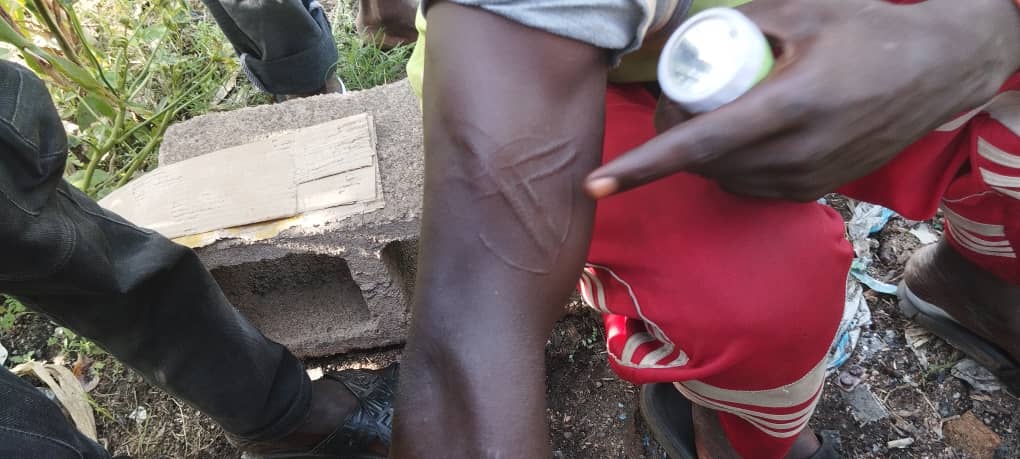
Abdullahi owned up to his crimes but he blamed poverty and the government’s ban on commercial motorcycles for his foray into crime.
Prior to joining the group, Abdullahi used to be a commercial motorcyclist in Yola. When the military and the government agreed to halt commercial motorcycle operations to contain the attacks of Boko Haram terrorists, people like Abdullahi went out of business.
“We were not making enough money before, but when they (the state government) took our machines, we did not have any means of making money again,” Abdullahi said. “So we take drugs to make us confident, then we go out and see who has money.
“If someone has a big phone, it means the person has more money than us. So, we take the phone from them. If they have other valuable items, we take it from them and sell.”
Infogram
In June 2023, the National Bureau of Statistics (NBS) published data that showed 3.4 million Adamawa State residents were in multidimensional poverty. This number represents 68.7 percent of the state’s population. The state has a population of about 4.9 million.
Abdullahi knew the mortal risks that came with his vice but he might have gone back to it if not for his injury. He told us he believed he was one of the poorest in the state, and that there were richer people he should take from. We wanted to know why he and others would take this risk, but beyond poverty, and he said it was easy to get off the hook if the police arrested them.
“We give the police N5,000 or N10,000 and they let us go,” Abdullahi told us. His claim was that the police were contributing to the crime rate. When we spoke with the state’s police spokesman four days later, he said the police had challenges with prosecuting Shilla Boys and it was difficult to detain them. However, he did not agree with the claim that his men were collecting bribes.
Asked if he feels remorse over the robberies and killings he and his gang perpetrate, Abdullahi said, “We feel it, but we have to survive. It is either we take it or we die. I have a wife and children, and I have to feed them, but before I go out, I take drugs and smoke to get high and do it.”
When we interviewed a repentant receiver, he told us he usually got phones from the boys and broke the phones’ International Mobile Equipment Identity (IMEI) number before selling them.
This, he said, would prevent the police from tracking the device after it was sold. He spent three years in prison before he repented.
‘SHILLA BOYS ALMOST KILLED ME IN 2021’ — YARO
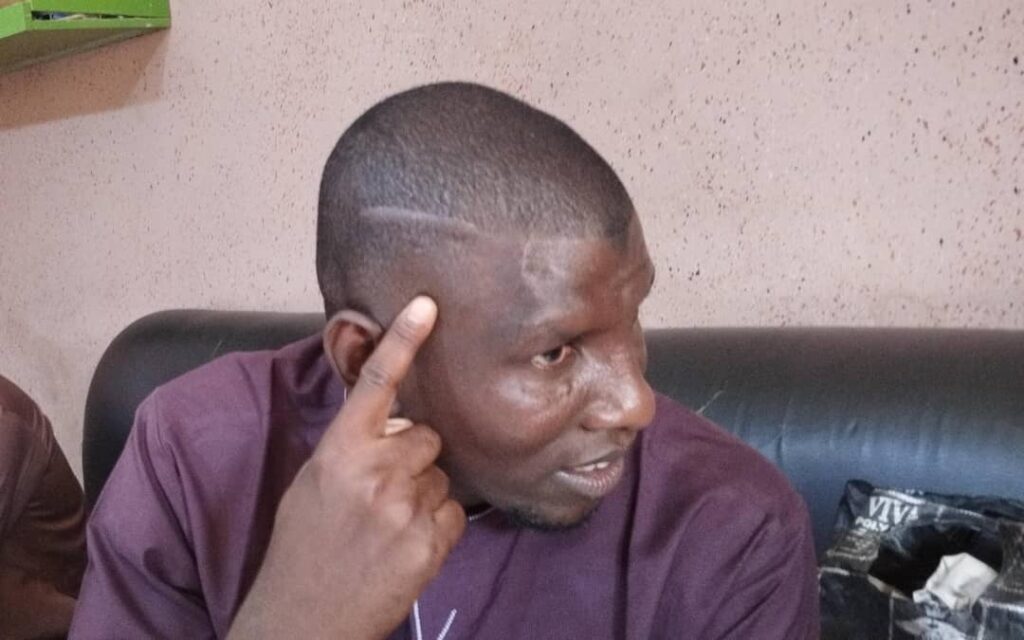
Yaro survived one attack in 2021 when he ran into a mosque but, months later, the Shilla Boys made their way into his house in the dead of the night.
Days after we spoke with the Shilla Boys, we took a ride to the heart of town where residents were going about their daily businesses. It is usually safer in busy areas, some residents told us.
They said when people litter the streets, the criminals do not strike for fear of retaliatory attacks. Yaro knows this quite well.
We walked into his barbershop and met him cutting a customer’s hair while a 12-year-old apprentice watched on. He would later tell us that he was taking in young boys to learn from him lest they join the dreaded gang.
Yaro spots a permanent side parting on his head that one could mistake for the handiwork of a barber, and being a barber himself, it was not difficult to make such an assumption. His head tells a different story, though.
He sat us down in his shop and recounted how a cutlass failed to take his life but left a permanent scar on his head. It was December 26, 2021. The sun had retired for the night, and the streets were quiet.
He was sleeping when he heard a noise in the dead of the night. Shilla Boys were trying to get into his apartment, and soon after, they succeeded.
“They knocked on my door. I asked who it was, they said, “Open the door”. I said, “I will not open the door, tell me who are you.” They now started breaking my door by pushing it,” Yaro narrated.
“They macheted my door, broke it and got in. When they got in… I don’t actually know what they used but they attacked me, you can see,” He said, pointing to the scar on his head. He also had cuts on his body and back. “They used turbans to cover their faces, and some used face masks.”
Yaro told us that residents had lost faith in the police, and some of them came together to form a vigilante group led by a man they know as Baba Ojimeta.
He corroborated Abdullahi’s claims of arrested suspects regaining freedom after a short while. Yaro had a personal experience. Two days after his death scare, the vigilantes arrested a young boy identified simply as Bashiru.
“After they caught him at night, they flogged him,” Yaro narrated. “They even took him to their house to show him to his parents. Very unfortunately, the parents pleaded saying, “Please be patient, we are going to warn him”. So, they just left.
“In the early morning of the next day, the boy organised a group of young men like him. They carried local weapons like the machete I mentioned earlier and attacked Baba’s house. They said they came to get revenge because ‘Baba caught our brother and flogged him at night’. That was when we arose, came out en masse, caught the boy and handed him over to the police,” Yaro told FIJ.
According to Yaro, the boy’s brother-in-law was a policeman and he asked for the matter to be swept under the carpet, but the mob refused. Soon after, 19-year-old Bashiru regained his freedom, and the community only saw him when he wound up dead in the streets of Yola North. How he died remains unknown.
Days before we met Yaro, Mariam Adamu and Amina Abdulkadir sat with us to narrate how their children were arrested by the police in connection with Shilla Boys’ activities.
A TALE OF TWO ARRESTS
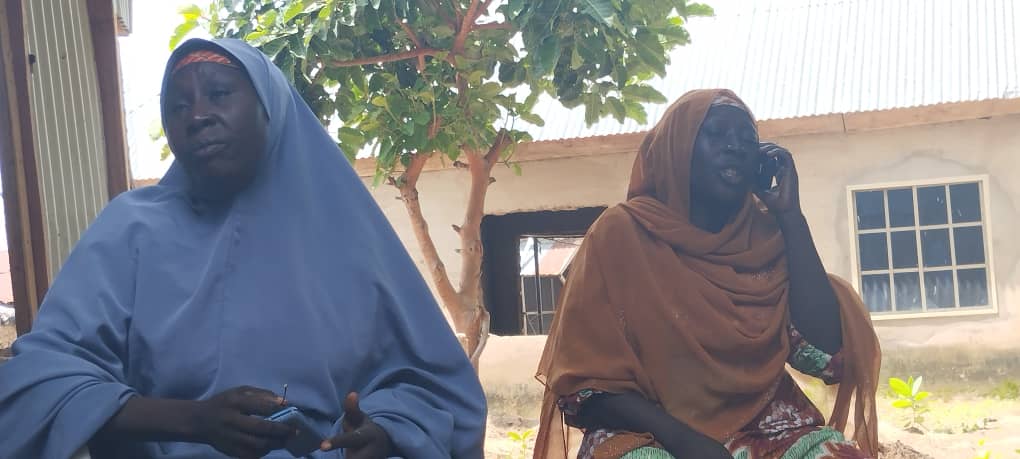
On July 30, 2023, Adamawa State residents broke into government and private facilities in Sengari and other areas in Yola South and Yola North local government areas of the state to cart away food items.
They destroyed warehouses along Yola Numan Road in the PZ area of the capital city. In response, Umaru Fintiri, the state governor, declared a curfew.
A day after the curfew was announced, the police arrested Abdulwahab Adamu, Mariam’s son.
She believes her son is innocent, but the police suspect him because he has been arrested in the past.
“He went to the farm. He asked me what we would eat for breakfast, and I told him to relax and wait for a while for me to make breakfast,” Mariam told us. “After taking his breakfast, he left for the farm. Incidentally, that was the day the hoodlums attacked stores. When he was about to go to the farm, he got arrested by the vigilantes assisting the police. He was arrested without any form of palliative on him.”
Mariam said her son was detained in the Jimeta Central Prison and was charged to court but Ahmed Jarma Faro, a court clerk, asked her to pay N20,000 for him to help her kill the case against her son.
FIJ called Faro and sent him text messages, but he did not respond to our inquiry.
Amina Abdulkadir’s nephew is a Shilla Boys operative. He joined the group in 2018 when he was 18 and he killed someone.
Sulaiman Jibrin left his parents in Gombe State in 2018 to live with Abdulkadir in Adamawa but he joined the Shilla Boys.
One day, he and others went to steal a keke napep rider’s windshield but the rider caught up with them and made to recover his property. The boys stabbed the rider to death.
The rider was buried while Jibrin and some of his partners were arrested a day after the killing. Now 21, he has spent three years in prison. Abdulkadir says she knows her nephew was caught with the murder weapon, and she knows he confessed to her and the police, but his crime doesn’t affect him alone as it has broken her and his family.
Her story opens us to a new understanding that the crime perpetrated by the Shilla Boys affects the boys, victims, victims’ families and the Shilla Boys’ families.
WHY WE STRUGGLE TO PROSECUTE SHILLA BOYS — POLICE
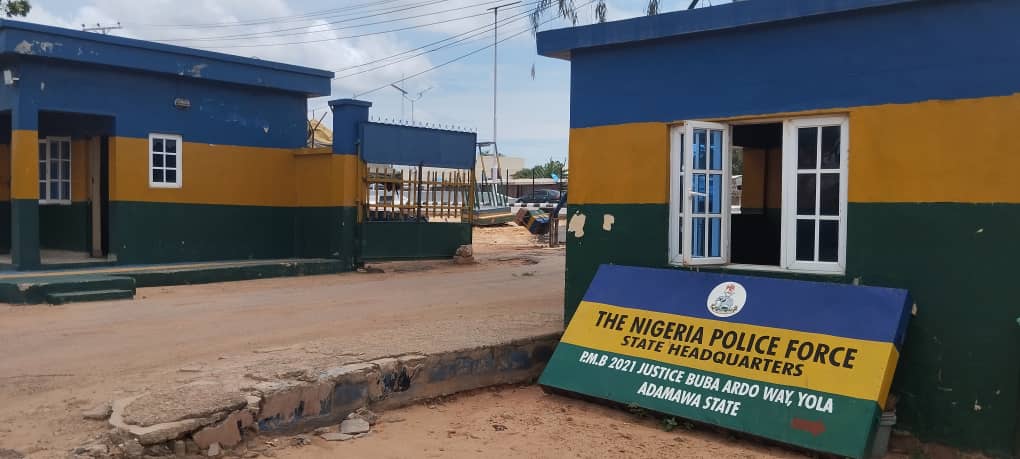
We took our findings to Suleiman Yahaya Nguroje, Police Public Relations Officer (PPRO) in Adamawa State. When we got to his office, we shared our findings and the positions of the residents with him.
He told us the police frowned at bribe collection and would sanction any officer they got demanding or collecting bribes.
However, he told us the police had challenges in its investigations as people hardly came forward to testify or offer information to the police.
Yahaya said, “You hardly see anybody coming forward to give evidence that ‘Yes, this is my handset’ or ‘Yes, you snatched it’. By the time we charge somebody to court, it is expected of us as the police to provide both human and material evidence. But when the owner of the phone is not forthcoming, it is difficult to proceed.
“The police lacks jurisdiction to grant administrative bail. Instead, we charge them to court. Most of the time, we charge them to magistrate court. So the magistrate court can now use its own power to remand them in prison, while the case file within which you use to gather both human and material evidence to substantiate your allegations against them will be forwarded to the director of public prosecutions, ministry of justice for them now to vet and give legal advice before they now take it to a high court.”
While in his office, we met the spokesperson for the National Drug Law Enforcement Agency (NDLEA) in Adamawa.
Abraham Nachafia, the spokeswoman, told us the NDLEA was aware of the drug trade in the state and was organising sensitisation programmes for the young people in the state.
She said on some occasions they go out to cut bushes and clear dumpsites so that drug peddlers do not hide behind them.
“There is a long-term effect of drug use. There was one NGO that came to our office on Friday. They came and told us about their operation and they want us to work hand in hand,” Nachafia told FIJ.
“We promised them we were going to put in our best in sensitisation. In fact, that was even why we cut down the trees. One area where they slaughter meat is their case study. We cannot stop this completely, that’s the truth. But we are putting in our best, making sure we reduce it by sensitisation, arrest and prosecution.”
Neither the police nor the NDLEA believes the Shilla Boys problem will go away any time soon, and while the public is of the opinion that the police are not helping enough, the police believe the public is not furnishing it with enough information to prosecute the matter.
All parties agree that poverty, moral decadence and drug use contribute immensely to the problem, but while the NDLEA tells FIJ it is working to rid the state of drugs, the majority of the state’s residents remain poor, and many have no problem with taking to crime if they can get away with it.
On June 21, 2023, the Adamawa State House of Assembly entertained a bill to toughen the penal code and punish members of the Shilla Boys group. The bill is not yet law, but the state has chosen a more aggressive approach to the menace, and the boys are now in hiding.
*Names changed on sources’ request.
This report was completed with the support of the Centre for Journalism Innovation and Development and the Open Society Foundations.
Subscribe
Be the first to receive special investigative reports and features in your inbox.






